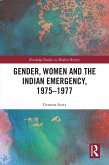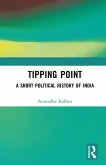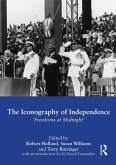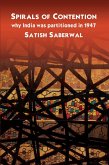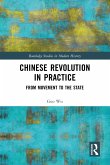Gender, Women and the Indian Emergency, 1975-1977 addresses this gap, as the first major study of the role of women and gender in shaping these events. Drawing on doctoral research and new data, this book documents the many ways in which women and gender were integral to the regime's articulation and implementation. It reveals new insights into women's experiences of Emergency measures and examines their participation in anti-Emergency activism, bringing previously untold histories to light. In doing so, it fundamentally re-shapes our understandings of this period.
Dieser Download kann aus rechtlichen Gründen nur mit Rechnungsadresse in A, B, BG, CY, CZ, D, DK, EW, E, FIN, F, GR, HR, H, IRL, I, LT, L, LR, M, NL, PL, P, R, S, SLO, SK ausgeliefert werden.



